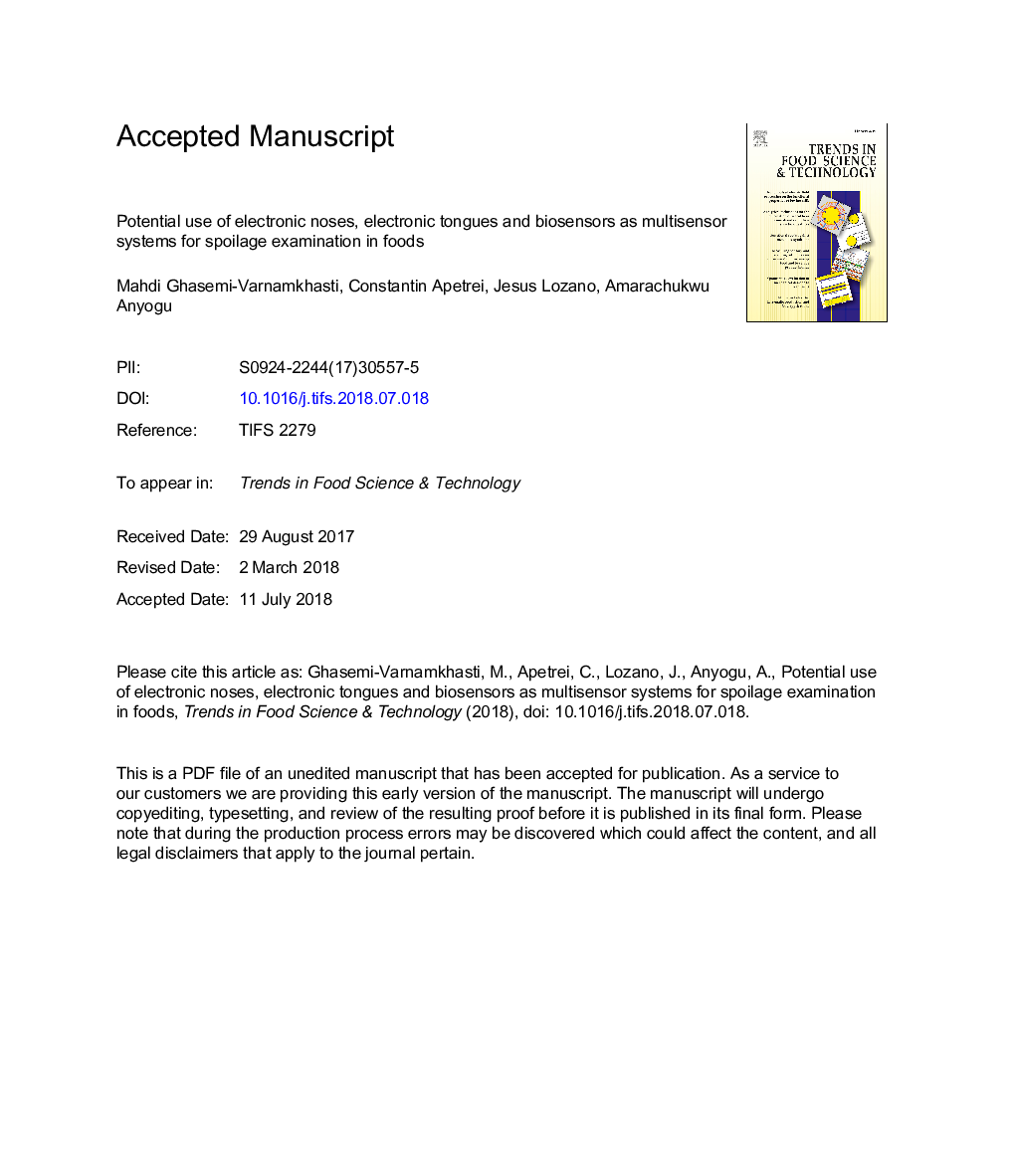| Article ID | Journal | Published Year | Pages | File Type |
|---|---|---|---|---|
| 8427892 | Trends in Food Science & Technology | 2018 | 116 Pages |
Abstract
Development and use of reliable and precise detecting systems in the food supply chain must be taken into account to ensure the maximum level of food safety and quality for consumers. Spoilage is a challenging concern in food safety considerations as it is a threat to public health and is seriously considered in food hygiene issues accordingly. Although some procedures and detection methods are already available for the determination of spoilage in food products, these traditional methods have some limitations and drawbacks as they are time-consuming, labour intensive and relatively expensive. Therefore, there is an urgent need for the development of rapid, reliable, precise and non-expensive systems to be used in the food supply and production chain as monitoring devices to detect metabolic alterations in foodstuff. Attention to instrumental detection systems such as electronic noses, electronic tongues and biosensors coupled with chemometric approaches has greatly increased because they have been demonstrated as a promising alternative for the purpose of detecting and monitoring food spoilage. This paper mainly focuses on the recent developments and the application of such multisensor systems in the food industry. Furthermore, the most traditionally methods for food spoilage detection are introduced in this context as well. The challenges and future trends of the potential use of the systems are also discussed. Based on the published literature, encouraging reports demonstrate that such systems are indeed the most promising candidates for the detection and monitoring of spoilage microorganisms in different foodstuff.
Related Topics
Life Sciences
Agricultural and Biological Sciences
Food Science
Authors
Mahdi Ghasemi-Varnamkhasti, Constantin Apetrei, Jesus Lozano, Amarachukwu Anyogu,
